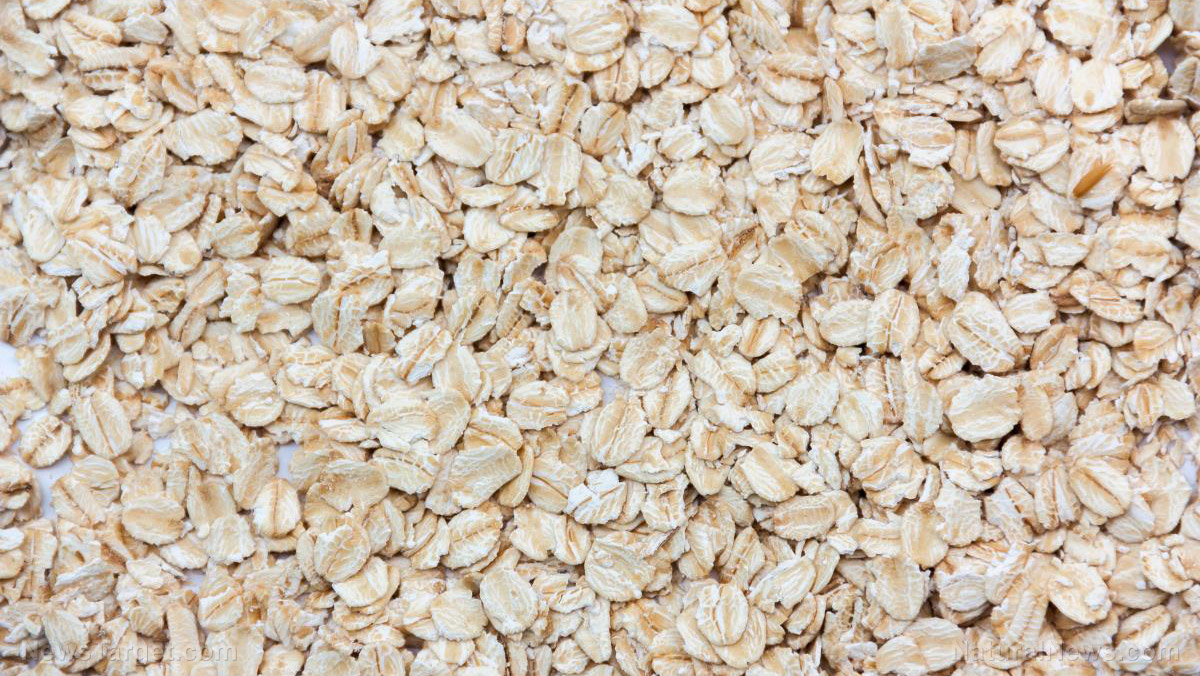Not into tofu? Here are 5 reasons to eat tempeh instead
12/26/2019 / By Zoey Sky

Tofu is a popular plant-based protein source. If you’re not into tofu and you want something different that’s also nutritious, try some tempeh.
Tempeh, the soy-based superfood
In fact, tempeh is considered tofu’s even healthier soy-based cousin. While it’s not as popular as tofu, tempeh is often used as a tasty and nutritious ingredient in salads and stir-fries.
Tofu and tempeh both come from Asia: The former is from China while the latter comes from Indonesia.
The two superfoods are made from soy and they have a relatively mild flavor, making them vegan-friendly sources of protein or healthy alternatives for those who want to eat less meat.
Tofu is made from soy curds, but tempeh is made from de-hulled, partially cooked soybeans fermented with a starter that includes Rhizopus oligosporus fungi spores. The shape of the beans is visible in the finished tempeh cakes and they add texture to dishes.
Tofu has a neutral flavor profile, but tempeh is chewy with a pleasing nutty taste that pairs well with salty or spicy marinades and sauces.
Try marinating tempeh or adding herbs and spices to increase its flavor. This versatile superfood can be baked, crumbled, sauteed or steamed before adding it to savory dishes.
Brigid Titgemeier, a functional medicine dietitian, explains that tempeh is a great superfood because it contains the health benefits of soy and those specific to fermented foods.
Below are five of tempeh’s best health benefits.
1. Tempeh’s nutrient content is more bioavailable
As a soy-based food, tempeh is rich in B vitamins, calcium and iron. However, the fermentation process reduces levels of phytic acid, which lets your body access and absorb these nutrients more easily.
Additionally, tempeh is rich in calcium, which you need to boost your bone health. Tempeh contains about 10 percent of your daily requirement of calcium per serving.
Dairy products are considered some of the most bioavailable sources of calcium, but data has found that the calcium in tempeh is almost as easy to absorb as calcium from dairy milk.
As a bonus, fermentation breaks down the starches that sometimes cause gassiness when you’re consuming soy in its natural state. This means tempeh could be better tolerated than other soy foods, especially if you have a soy sensitivity.
2. Tempeh is a great source of complete protein
Soy is the best source of high-quality protein for those who don’t eat meat. It is the only legume and plant food whose proteins are assembled from all essential amino acids necessary for overall health.
This makes tempeh a potent source of protein. A three-ounce serving contains 16 g of protein, with 7 g of fiber and 10 percent of your daily requirement of iron.
3. Tempeh boosts gut health
Tempeh is rich in prebiotic fiber that fuels the “good” bacteria in your gut.
When gut bacteria breaks down prebiotic fiber, they produce beneficial short-chain fatty acids like butyrate that strengthen and heal the gut lining. These fatty acids also help minimize systemic inflammation. (Related: 11 Gut-healthy foods to add to your diet.)
4. Tempeh helps lower cholesterol
According to a study, the isoflavones in tempeh help improve heart health.
Findings revealed that the soy isoflavones in all soy products studied lowered levels of LDL and total cholesterol.
5. Tempeh helps relieve hot flashes
Soy is the only food that’s rich in isoflavones, a group of phytochemicals.
Isoflavones are a type of plant estrogen that interacts with human estrogen receptors in the body. Some studies are trying to determine if soy isoflavones can help balance hormones and address perimenopausal and menopausal symptoms such as hot flashes.
Tips for buying tempeh and serving suggestions
Purchase tempeh in the refrigerated aisle of grocery stores. Look for rectangular cakes that can be sliced or crumbled and then cooked.
Always buy organic, non-GMO tempeh to avoid products contaminated with the pesticide glyphosate that is linked to many negative side effects and environmental problems.
According to Titgemeier, you can consume at least two to three servings of soy a week.
Keep in mind that soy may affect the thyroid gland. Studies show that consuming too much soy can increase TSH (thyroid-stimulating hormone) levels in women with hypothyroidism. If you have low thyroid issues like Hashimoto’s disease, it is best to avoid all forms of soy.
Sources include:
Tagged Under: diets, digestion, fermented soybean, fiber, food cures, food is medicine, fresh, functional food, gut health, nutrients, organics, prebiotics, soy, tempeh
RECENT NEWS & ARTICLES
Digestion.News is a fact-based public education website published by Digestion News Features, LLC.
All content copyright © 2018 by Digestion News Features, LLC.
Contact Us with Tips or Corrections
All trademarks, registered trademarks and servicemarks mentioned on this site are the property of their respective owners.


















